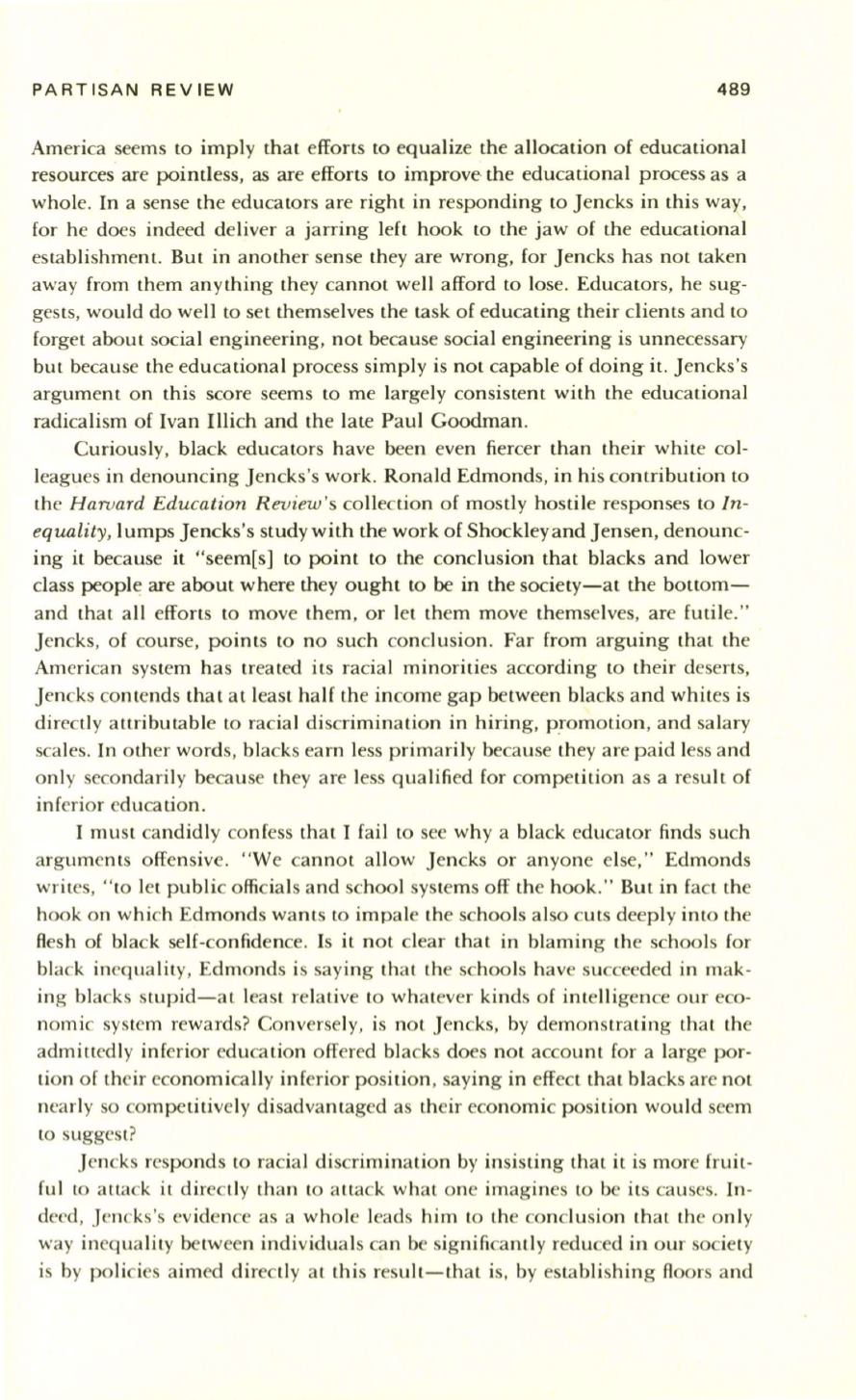
PARTISAN REV lEW
489
America seems to imply that efforts to equalize the allocation of educational
resources are pointless, as are efforts to improve the educational process as a
whole. In a sense the educators are right in responding to Jencks in this way,
for he does indeed deliver a jarring left hook to the jaw of the educational
establishment. But in another sense they are wrong, for Jencks has not taken
away from them anything they cannot well afford to lose. Educators, he sug–
gests, would do well to set themselves the task of educating their clients and to
forget about social engineering, not because social engineering is unnecessary
but because the educational process simply is not capable of doing it. Jencks's
argument on this score seems to me largely consistent with the educational
radicalism of Ivan IIIich and the late Paul Goodman.
Curiously, black educators have been even fiercer than their white col–
leagues in denouncing Jencks's work. Ronald Edmonds, in his contribution to
the
Harvard Education Review's
collection of mostly hostile responses to
In–
equality,
lumps Jencks's study with the work of Shockley and Jensen, denounc–
ing it because it "seem[s] to point to the conclusion that blacks and lower
class people are about where they ought to be in the society-at the bottom–
and that all efforts to move them, or let them move themselves, are futile."
J encks, of course, points to no such conclusion. Far from arguing that the
American system has treated its racial minorities according to their deserts,
Jencks contends that at least half the income gap between blacks and whites is
directly attributable to racial discrimination in hiring, promotion, and salary
scales. In other words, blacks earn less primarily because they are paid less and
only secondarily because they are less qualified for competition as a result of
inferior education .
I must candidly confess that I fail to see why a black educator finds such
arguments offensive. "We cannot allow Jencks or anyone else," Edmonds
writes, " to let public officials and school systems off the hook." But in fact the
hook on which Edmonds wants to impale the schools also cuts deeply into the
flesh of black self-confidence. Is it not clear that in blaming the schools for
black ineq uality, Edmonds is saying that the schools have succeeded in mak–
ing blacks stupid-at least rela tive to whatever kinds of intelligence our eco–
nomic system rewards? Conversely, is not Jencks, by demonstrating that the
admittedly inferior educa tion offered blacks does not account for a large por–
tion of their economically inferior position, saying in effect that blacks are not
nearly so competitively disadvantaged as their economic position would seem
to suggest?
Jencks responds to racia l discrimination by insisting that it is more fruit–
ful to attack it directly than to attack what one imagines to be its causes. In–
deed , J encks 's evidence as a whole leads him to the conclusion that the only
way inequality between individuals can be significantly reduced in our society
is by policies aimed directly at this result-that is, by establishing floors and


